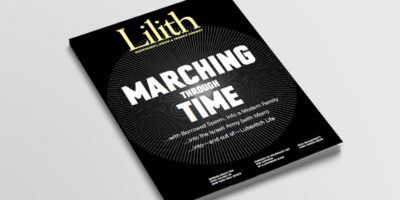Making the Audience Feel Smarter
Chaos, hats, and chairs. Cartoon jazz jaunts. Performers percolate. Has the show started? As we take our chairs, they take theirs — on stage.
We are blithely told to turn off our phones OR leave them on: “Our wish is for you to get a message during our show that changes your life.”
From first chirp, “Odd Birdz,” which had a month-long run in New York City in the fall, promises to be unpredictable.
Blackout. Smoke machine. Staccato light flashes. This Israeli troupe of nine performers, women and men known collectively as Tziporela, greets us with a sequence of staged snapshot vignettes — posing as audience members looking out at us, the real audience. We are reflected as rapt, clueless, sleepy, impatient, dull, hungry, passionately romantic…and very pretty! The cast is spunk-funky gorgeous. How kind they are to allow us schlubs to be them.
Blackout. Smoke. A sexy woman in profile wears lipstick (on the side we see). She lip-syncs Love is Strange. Her face turns 180 degrees, no lipstick, chin jutted, she adds a fedora. Now she’s a man in profile to lip-sync This Thing Called Love. Flip, he’s a she. Flip, she’s a he. This solo performer speak-sings a conversation wholly in pop song lyrics. But it’s more than just a virtuoso character swap. The concept resonates as a portrait of how we might zigzag within ourselves when obsessing about love.
Blackout. Smoke. A man and a woman, dating online, meet in person for the first time. They speak in “Mad-Libs,” so each one fills in a blank left by the other. He: No matter where I go… She: I never come. Their banter zings like captions, wittier than ordinary dialogue. Most comedy is flung at you. Theirs gets inside you, by inviting you to participate in mentally guessing what might be next. You’re not just watching something funny, you get to ride in the funny car with them. Mercifully without the annoyance of boorish audience participation, the kind that plucks a person from the crowd to serve as stooge, “Odd Birdz” works to make the audience feel smarter, not stupider.
And they put the sketch in sketch comedy. A man and woman sporting several layers of white t-shirts wield markers, drawing on each other (and themselves) to doodle-mime the sweet and sour story of their undulating flirtation. Suddenly these actors are not just people, but markers who uncap themselves to personify a live cartoon! What’s perfect about this sketch is that it has to be experienced. A description flattens it, because it’s not necessarily about the details of each action.
Instead it’s the gestalt of a complex relationship air-kissed into a favorite cartoon.
The most breathtaking scene starts with a woman, almost like a character in a Feiffer cartoon, who presents: A Dance to Set the Table. It’s comic, frantic, worrisome, and beautiful — the way preparing for any dinner party feels. Others help, some get in they way. Suddenly exhausted, the dancer collapses on the table.
And as she slowly lifts her legs, we see she has drawings of a man and a woman on the soles of her feet. Her legs are now a puppeteer. The base of a wine glass rises to become the sun. Forks turn into birds. It’s as if the stage just rotated, and the story living on the bottom can now be told.
And it’s this constant turning things over that feels most Jewish to me about “Odd Birdz.” The show is a theatrical embodiment of being able to read our lives from left to right, right to left, bottom to top. It’s the mix in the mind of English and Hebrew as an idea, not necessarily a language. It’s why this show feels so original, even as it camps on elements of classic improv and sketch comedy. I can’t locate what the word “Tziporela” officially means. But I now plan to use it as an English word eponymously meaning, a fluent and comic ability to move in any direction to express truth as a visual surprise.


